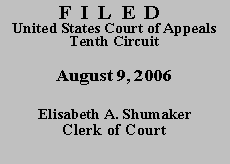

| UNITED STATES OF AMERICA,
v.
ERNEST EADS |
|
Defendant-Appellant Ernest Eads, appearing pro se, appeals the District Court's denial of his petition for a writ of coram nobis. We have jurisdiction under 28 U.S.C. § 1291, and because Mr. Eads fails to explain the sixteen-year gap between his conviction and his petition, we AFFIRM.
In December 1988, Mr. Eads was charged in a two-count information in the Northern District of Oklahoma for controlled substance offenses. The following month, in January 1989, he pleaded guilty to Count One (a felony) and the Government dismissed Count Two. He completed an 18-month sentence without appealing either his sentence or his conviction. Around the same time as this conviction, Mr. Eads was separately convicted of another felony controlled substance offense.
Mr. Eads' troubles did not end there, however, because in 1997 he was convicted in the Western District of Missouri of yet another felony controlled substance offense. Due to his two prior felonies, the Western District of Missouri classified him as a career felon and sentenced him to life imprisonment. See 21 U.S.C. § 851; United States Sentencing Guidelines Manual § 4B1.1. In 1998, the United States Court of Appeals for the Eighth Circuit affirmed both the conviction and sentence. United States v. Eads, 144 F.3d 1151 (8th Cir. 1998).
In 2005, Mr. Eads filed a petition for a writ of coram nobis in the Northern District of Oklahoma arguing that that court failed to inform him in 1989 of his right to an appeal and his right to appellate counsel. The District Court declined to issue the writ, in part due to the belated nature of the petition. Mr. Eads now appeals.
The writ of coram nobis is available to federal courts in criminal cases under the All Writs Act, 28 U.S.C. § 1651. See United States v. Morgan, 346 U.S. 502 (1954); Klein v. United States, 880 F.2d 250, 253 (10th Cir. 1989). "It is used to attack allegedly invalid convictions which have continuing consequences, when the petitioner has served his sentence and is no longer 'in custody' for purposes of 28 U.S.C. § 2255." United States v. Stoneman, 870 F.2d 102, 105 (3d Cir. 1989). The writ is an extraordinary one, however, because it extends litigation beyond the final judgment and the exhaustion of other remedies. Klein, 880 F.2d at 253. Accordingly, the writ may be used only to "correct errors that result in a complete miscarriage of justice." United States v. Williamson, 806 F.2d 216, 222 (10th Cir. 1986). For this reason, the petitioner must exercise due diligence in seeking the writ, and he carries the burden to make such a demonstration. Klein, 880 F.2d at 25354.
As the District Court noted, Mr. Eads has failed to show why he has made no attempt to raise the substance of his coram nobis petition at any time for the past sixteen-plus years since his conviction in 1989. Rather, Mr. Eads simply contends that his case warrants special consideration notwithstanding his delay. Such an assertion does not satisfy Mr. Eads' burden to demonstrate due diligence, and for this reason we affirm the dismissal of his petition.
ENTERED FOR THE COURT,
Deanell Reece Tacha
Chief Circuit Judge
*.This order and judgment is not binding precedent, except under the doctrines of law of the case, res judicata, and collateral estoppel. This court generally disfavors the citation of orders and judgments; nevertheless, an order and judgment may be cited under the terms and conditions of 10th Cir. R. 36.3.